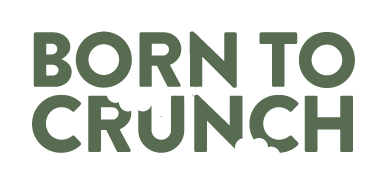One Earth
“We already have all of the facts and solutions. All we have to do is to wake up and change.” Greta Thunberg
There is an urgent need to save our planet. It’s easy to feel helpless in the current political climate, but we can individually work to reduce our carbon footprint. I’ll be blunt: excusing inaction with, “How will anything I do actually make a difference?” is pathetic. Not voting because you don’t think your vote matters and/or you don’t love any of the candidates is atrocious. Our predecessors risked their lives to give us this right to vote and have a voice. Inaction is egregious; action is the only answer for change. Our generation has so many opinions, but how many of us actually do anything about them? Posting a selfie to Instagram does not count.
Every positive action you take matters! That one action will lead to greater change. You may inspire family, friends and coworkers. Just because you don’t think you’ll get a 100% on an exam doesn’t mean you don’t study. You may not make it to the NFL, but you still work your butt off in football practice. Don’t you want your children live in a world in which they can securely play, eat and spend time outside, let alone breathe? To see the nature you have been so lucky to experience? When we kill our Earth’s biodiversity and species, this means killing us, too.
“You cannot get through a single day without having an impact on the world around you. What you do makes a difference, and you have to decide what kind of difference you want to make.” Jane Goodall
Facts:
85% of the world’s wetlands have vanished since the 18th century
Wetlands clean and purify water
200 species go extinct every day (a rate 1,000-10,000 times higher than what is deemed normal)
1 million species face extinction, many w/in decades — ½-million land-based species & 1/3 of marine mammals and corals
Bees & other threatened insects pollinate fruits and vegetables
559 of our 6,190 domesticated mammal breeds used in agriculture have gone extinct. 1,000 more are threatened — this leads to a food system that is less resilient against pests and disease
More than 500,000 land species do not have enough natural habitat left to ensure their long-term survival
Loss of mangrove forests and coral reefs along coasts could expose up to 300 million people to increased risk of flooding
Mangroves protect us from floods made worse by rising seas
Coral reefs have been tasked with absorbing excess carbon dioxide, leading to warmer and more acidic oceans. Coral reefs nourish vast fish populations that feed the world.
Our biodiversity is declining faster than at any time in human history
The clearing of forests and wetlands for farms to feed the world is the main culprit
World’s natural forests are home to 2/3rds of world’s species
Organic matter in the soil nourishes crops
We use 100 million barrels of oil every day and there are no politics to change this
So, what can we actually do?
The world’s food system is responsible for ~ 1/4 of human-generated greenhouses gases.
Eat more locally sourced food that is in season — fossil fuels are used to ship food around the world
Farmers markets!
Cut back on meat and dairy products (these have the largest environmental impact)
Livestock requires immense amounts of land — much of this land is created by deforestation
Methane is a greenhouse gas that is a byproduct of burping/farting cows, sheep and goats upon digesting food
Beef and lamb have the biggest climate footprint per gram of protein
Farm machinery uses fossil fuels as does fertilizers
Check whether seafood is sustainable
Wild shrimp and lobster can have a larger impact than chicken or pork
Incorporate more mollusks into your diet
Focus on a diet richer in plant-based foods
You can shrink your food-carbon-footprint by more than 1/3 by moving to a more vegetarian diet
Cheeses like mozzarella & cheddar can have a bigger impact than chicken or pork
Organic milk is better for the climate – cows spend less time grazing
Non-dairy milks:
Almond milk uses the most water to produce, but generates the least carbon dioxide emissions and does not require much land
Both soy and oat milk require very little water, minimal land, but greater (only minimally) carbon dioxide emissions than almond milk
REDUCE FOOD WASTE!
Americans tend to throw away 20% of the food we buy — this is not only wasting the food, but the energy that went into producing this food
Carry around a reusable water bottle
The average American can save $6,180 after 5 years of using a $20 reusable water bottle
Throw a tote bag in your backpack or purse for that impromptu trip to the grocery store
Lastly, but most importantly – use public transportation and ride-sharing when you can…limit flying if possible
Ride bikes, walk, roller blade, scooter, run… HUMAN-POWERED TRANSPORT
When recycling:
Wash food waste out of takeout containers, but don’t use too much water
You cannot recycle #3 & 7 plastics (like yogurt containers) – the number is on the bottom of your plastics
You cannot recycle reusable coffee cups – they’re usually coated
You cannot recycle greasy pizza boxes
You cannot recycle plastic bags, but click here to learn where you can bring them
“Progress is impossible without change, and those who cannot change their minds cannot change anything.” George Bernard Shaw
Sources:
Major Climate Report Describes a Strong Risk of Crisis as Early as 2040
The Species Act, Endangered: ‘Like a Plan From a Cartoon Villain’
Plastic vs. Reusable Water Bottles
